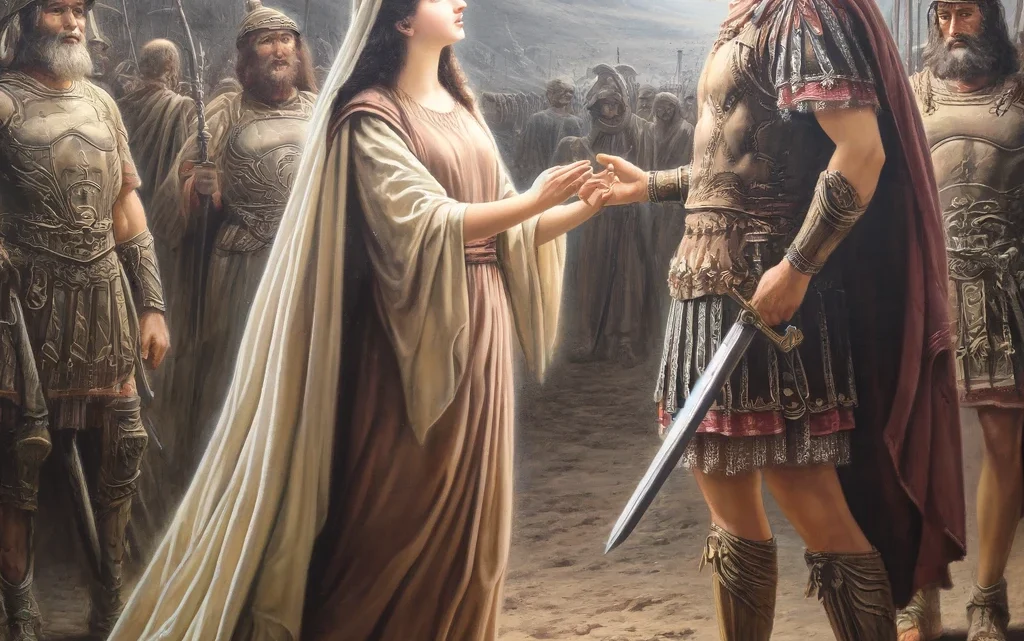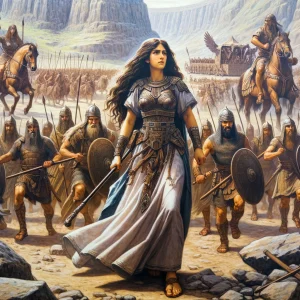“Forgotten Influencers: The Role of Women in Shaping Biblical Narratives”


Introduction
The Bible is filled with stories of remarkable women whose contributions are often overshadowed by their male counterparts. These women played significant roles in shaping biblical narratives, demonstrating courage, leadership, and faith. This post explores some of these lesser-known women in the Bible, highlighting their unique influence and the lessons we can draw from their stories.
Huldah: The Prophetess Who Confirmed the Law
• 2 Kings 22:14-20: Huldah was a prophetess during the reign of King Josiah. When the Book of the Law was discovered in the Temple, King Josiah sent officials to seek Huldah’s counsel. Her confirmation of the book’s authenticity led to a nationwide revival, with Josiah renewing the covenant and purging the land of idolatry (2 Kings 23:1-3, 24-25). Huldah’s role demonstrates the authority and respect given to women who spoke with God’s voice.Deborah: The Only Female Judge
• Judges 4:4-10: Deborah was a prophetess and the only female judge in Israel’s history. She played a pivotal role in rallying the Israelites to battle against the oppressive Canaanite army led by Sisera. Deborah’s leadership and prophetic guidance led to a decisive victory, which is celebrated in the Song of Deborah (Judges 5:1-31). Her story illustrates the strength and wisdom that women can bring to positions of authority.Abigail: The Peacemaker
• 1 Samuel 25:14-31: Abigail was the wife of Nabal, a wealthy but foolish man. When Nabal insulted David, the future king planned to destroy him and his household. Abigail, displaying remarkable diplomacy and courage, intervened and prevented bloodshed by appealing to David’s sense of justice and righteousness. Her actions not only saved her household but also changed David’s perspective, leading him to praise her wisdom (1 Samuel 25:32-35). Abigail’s story demonstrates the power of discernment and peacemaking.The Daughters of Zelophehad: Advocates for Women’s Rights
• Numbers 27:1-11: The daughters of Zelophehad, Mahlah, Noah, Hoglah, Milcah, and Tirzah, challenged the inheritance laws in Israel. Their father had died without sons, which meant their family’s inheritance would be lost. They approached Moses and argued that they should inherit their father’s land, and Moses took their case to God. God affirmed their claim, leading to a significant change in Israelite inheritance laws. This story underscores the impact of women who challenge unjust practices and fight for their rights.Implications for Today
These stories of women in the Bible offer valuable lessons for contemporary readers. They demonstrate that women have always played crucial roles in shaping history and faith. From prophetic guidance to leadership and diplomacy, these women influenced the course of biblical events in meaningful ways. Their stories encourage us to recognize and celebrate the contributions of women in all areas of life and faith.
Conclusion
While the stories of women in the Bible may not always be at the forefront, they contain rich lessons about leadership, courage, and faith. By exploring these narratives, we gain a broader understanding of the biblical message and the diverse ways in which God works through people. These stories remind us to value the voices and contributions of all individuals, regardless of gender.










